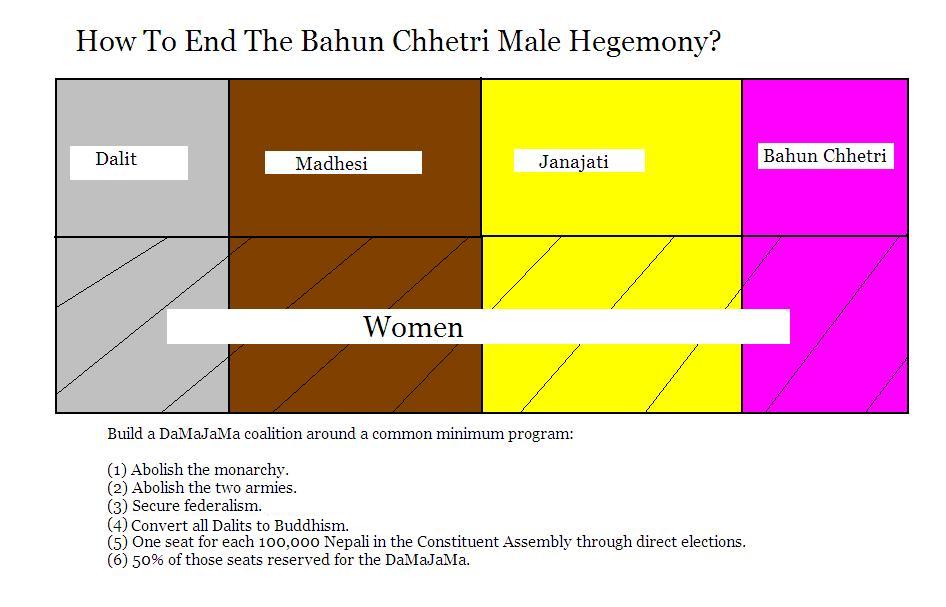

NEPAL: The need for a Truth Commission [28-10-2006] It’s been an extraordinary six months in Nepal. There have been no violent clashes between the Maoist and the military. An end to the nearly decade long conflict is finally on the horizon. But while peace talks and discussion to elections of constituent assembly take place in the capital, in the rural areas where most of the killings took place, deep divisions and suffering remain. As in Timor Leste and Aceh, rights activist say a truth commission, where victims and perpetrators can met is the only way a truly lasting peace can come about. However as Madhu Acharya reports, that could be as difficult as the current political peace talks. For those who survived the atrocities and the relatives of those who lost lives of their loved ones, it is not easy to forget and forgive grieve.
On The Web
Truth and Reconciliation Commission Home Page
Truth and Reconciliation Commission - Wikipedia, the free encyclopedia
BBC NEWS | Special Report | 1998 | 10/98 | Truth and ...
The Greensboro Truth and Reconciliation Commission
Truth Commissions Digital Collection: Library and Links: Jeannette ...
Pakistan Link
Burundi Approves Truth and Reconciliation Commission Plan
Comisión de la verdad y Reconciliación
Minister weighs up truth and reconciliation commission for ...
TRC Documents - Sierra Leone Web
Commission for Reception, Truth and Reconciliation
Greensboro Truth and Community Reconciliation Project - gtcrp.org
Official Website of the Sierra Leone Truth & Reconciliation (TRC ...
Peru: The Truth and Reconciliation Commission - a first step ...
Greensboro Truth & Reconciliation Commission
Conflict Research Consortium ARTICLE SUMMARY
SPP: Truth & Reconciliation Commission for Stonehenge
South Africa's Truth and Reconciliation Commission - Simpson & van Zyl
Truth Commissions
The Chilean Truth and Reconciliation Commission
WOLA: Peru's Truth Commission
Truth and Reconciliation Commission: Information From Answers.com
Talking Points Memo: by Joshua Micah Marshall April 26, 2006 03:30 PM
Truth and Reconciliation Commission in South Africa --- Chuck Gillies
The Effectiveness of South Africa's Truth and Reconciliation ...
Truth and Reconciliation
Online NewsHour: Facing the Past -- March 5, 1999
Race Matters - Truth & Reconciliation Commission
Truth and Reconciliation Commission fully clears the ICRC
Crimes of War > On The News
President Mandela's Address at Service for Truth and ...
[PDF] Children and The Truth and Reconciliation Commission for Sierra Leone
International IDEA | Peruvian Truth and Reconciliation Commission ...
Bibliography: War Crimes/Truth and Reconciliation Commissions
INCORE: Conflict Data Service: Thematic Guides
Truth and Reconciliation Commission - a Christian Response
The Effectiveness of South Africa's Truth and Reconciliation ...
Religion & Ethics NewsWeekly . COVER STORY . Sierra Leone: Truth ...
International Crisis Group - Sierra Leone’s Truth and Recon
Truth and Reconciliation Commission, South Africa: final report
Truth and Reconciliation Commission@Everything2.com
Progressio - East Timor: Truth and Reconciliation Commission ...
nistudents.org: Truth & Reconciliation Commission Expert to Speak ...
ZNet |Activism | Creation of First Truth and Reconciliation ...
Greensboro Truth & Reconciliation Commission: Reflections from the ...
Human Rights Watch: Commentary: Justice: The First Casualty of Truth?



